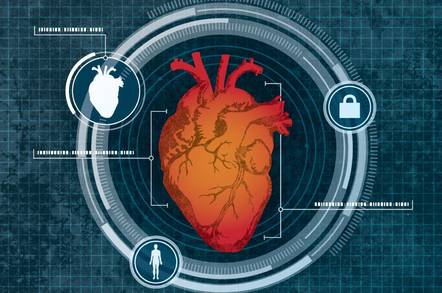Smartphones can already verify your identity by scanning your fingerprint or your face. But there's something inside you that's also unique proof that you're you.
智能手机可以通过扫描指纹或脸来验证身份,但同时在你的内心深处,也存在着你自己的特质来证明你就是你。
Researchers have developed a device that uses low-powered Doppler radar to decode the unique geometry of a user's heart…and how it squeezes and swells as it beats. That biometric information can authenticate the identity of the person under scrutiny.
研究人员已经研发了一种设备,利用低功率的多普勒雷达来解码用户心脏的独特几何形状,以及当心脏跳动时,是如何挤压和膨胀的。这种生物特征信号可以确认审查人的身份。
And if the wrong person sits down: "It would recognize that there is a heart, but the geometry of my heart is different from yours so it would still log me out."
如果错误的人入座后,“设备可以识别到有一个心脏,但是所检测的心脏的形状和你的不同,所以,我还是无法登陆系统。”

This unusual biometric is robust, because it's actually two different biometrics.
这种不同寻常的生物特征是很强大的,因为实际上,这是两种不同的生物特征信息。
The first is the shape of your heart -- a 'biologic' biometric or static trait, like fingerprints or iris patterns. The second is the beating of your heart: what's called a 'behavioral' biometric -- which analyzes a dynamic process, and can be harder to spoof.
第一个是心脏的形状--例如指纹或者虹膜类型等生物特征或者静态信息。第二个是你心脏跳动的节奏:也称为行为识别特征--主要分析动态过程,并且很难作假。
So far they've tested the system on about 100 people -- with an accuracy of over 98 percent. They'll present the results at the MobiCom conference in Utah.
目前为止,研究人员已经利用该系统测试了约100人--准确度超过98%。他们将在犹他州的MobiCom会议上展示此成果。


